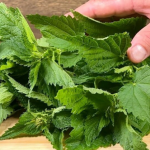Have you ever thought about using vinegar in your laundry routine? Vinegar is a cost-effective and eco-friendly alternative that benefits both the environment and your family’s health. Distilled white vinegar can be used in various ways to remove stains, soften towels, and eliminate unpleasant odors. But how does vinegar actually work as a cleaner?
Vinegar’s effectiveness as a cleaning agent is due to its strong acidity. With a pH of 2.5, distilled white vinegar is perfect for cleaning your home as it can dissolve soap scum, hard water stains, and even sticky glue.
It’s important to note that the pH may vary depending on the type of vinegar used. For example, cleaning vinegar with up to 10% acetic acid has a pH around 2.0 [3]. For laundry purposes, it is recommended to use a regular 5% solution.
Here are 6 ways you can use white vinegar to enhance your laundry routine:
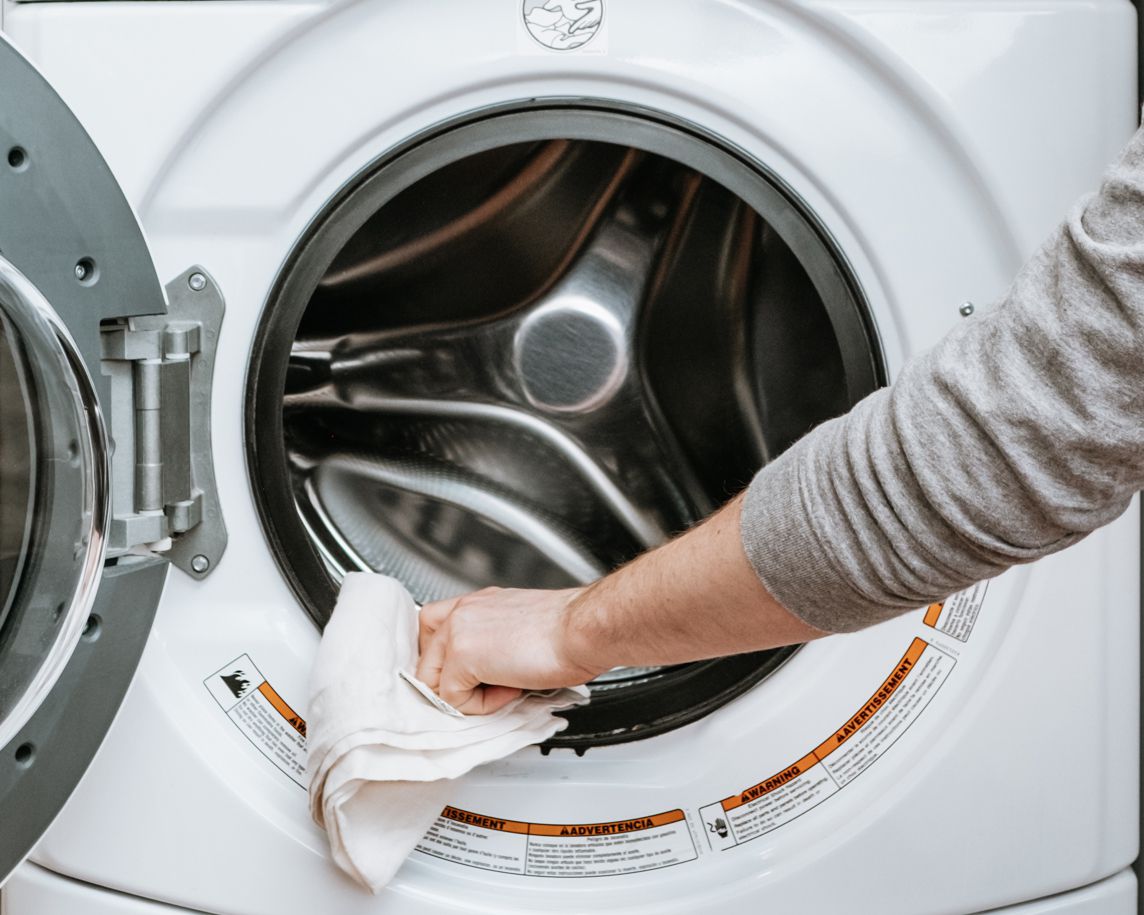
Vinegar can effectively eliminate odors without the need for artificial scents that only mask the smell or may irritate your skin. Whether it’s mildew, sweat, or just general odors, vinegar can help by destroying the germs that cause the unpleasant smell.
To remove mildew odors from towels, simply add 2 cups of distilled vinegar to a hot-water washer along with the towels, and run the usual cycle. If needed, you can repeat the process for even better results.
For clothing with lingering odors, add half to a cup of vinegar during the rinse cycle. Another option is to pre-soak heavily soiled clothes in a solution of 1 cup vinegar and cold water for about 20 minutes before washing.
Apply vinegar directly on the stained area and let it sit for 10 to 15 minutes before washing. If the stain is mild, soaking the item in a solution of 1 cup vinegar and 2 cups warm water can also be effective.
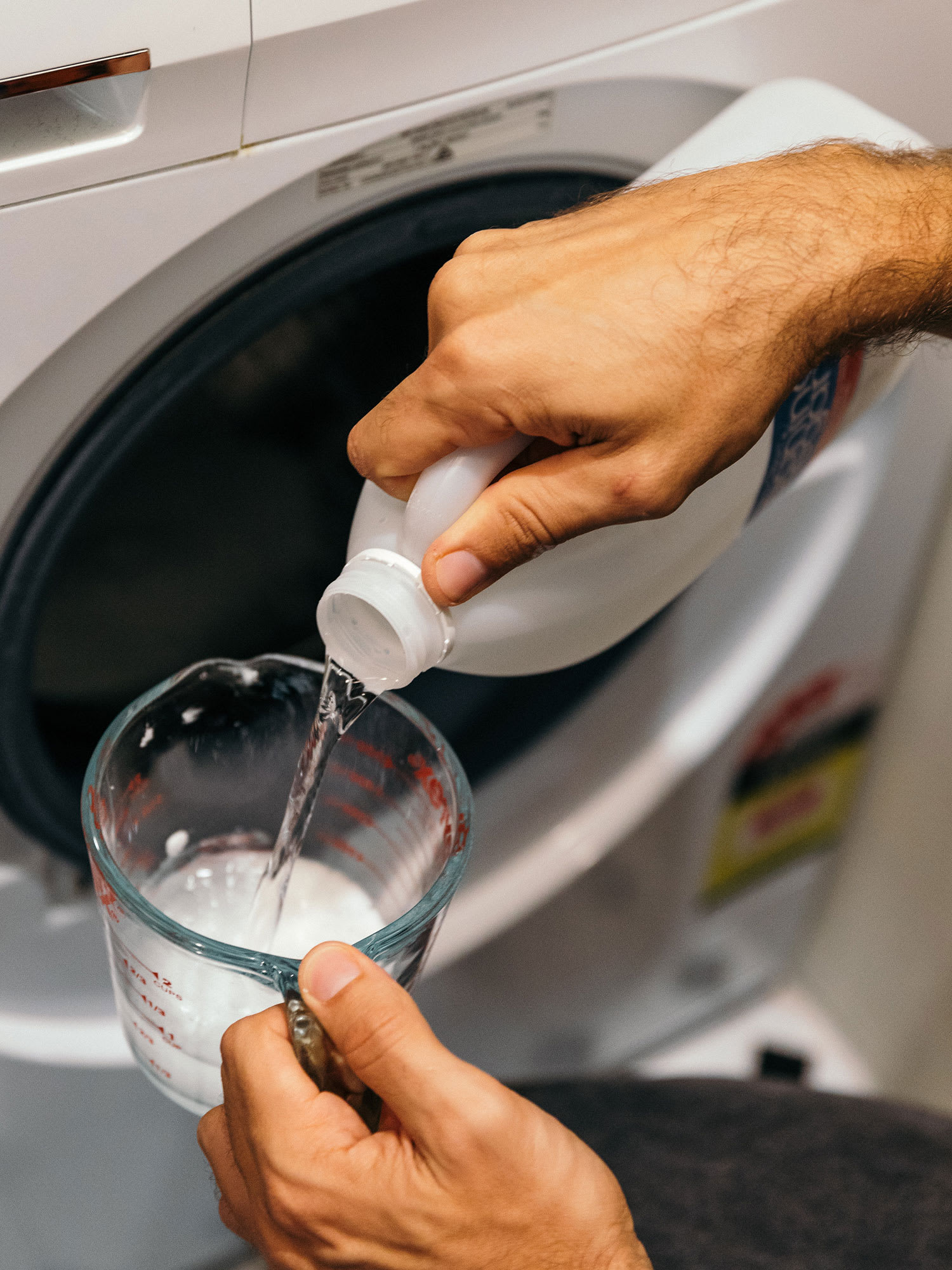
For tough stains, create a paste using one tablespoon each of vinegar and baking soda, and apply it sparingly.
Soap residue often clings to the fabric, causing dark items to fade after multiple washes. To prevent this, add around a cup of vinegar to the last rinse cycle and help your dark colors stay black.
White vinegar is a great natural solution for repelling lint, pet hair, and static from your laundry. Simply add half a cup of vinegar to the rinse cycle of your washing machine.
Vinegar not only cleans but also softens your clothes, towels, and linens by breaking down detergent residue. Instead of using a commercial fabric softener, try pouring half a cup of vinegar into your machine’s fabric softener dispenser and see the magic happen.
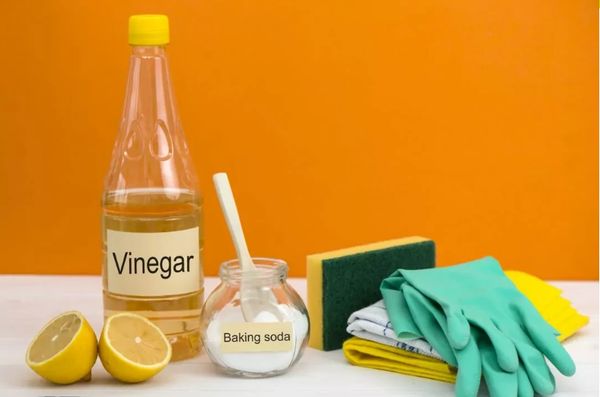
Vinegar can brighten and whiten your white clothes without the need for harsh chemicals. For regular loads, add one to two cups of vinegar to the wash cycle to eliminate stubborn stains. To tackle underarm stains, soak white items overnight in a solution of two cups vinegar and half a gallon of hot water, if you can tolerate the heat. Then wash as usual.
The scent of distilled vinegar dissipates after drying, so you don’t have to worry about it lingering on your clothes. With all the benefits it offers, vinegar is a smart addition to your laundry routine. Stock up on this versatile ingredient and watch as your laundry frustrations fade away.
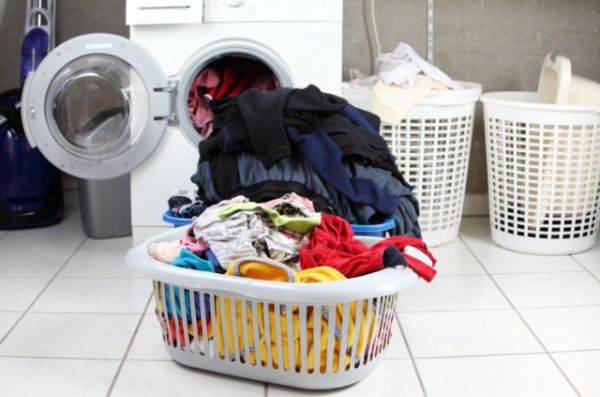
When using vinegar, it’s important to use it properly to avoid any damage to your clothes or washing machine. Keep these tips in mind next time you do your laundry:
Use the recommended amounts of vinegar as mentioned in the tips above.
- Always check the care labels on your clothes to ensure they can tolerate vinegar.
- Do not use vinegar on delicate fabrics such as silk or wool.
- Avoid using vinegar if you have hard water, as it may cause mineral buildup in your machine.
Are you already enjoying the benefits of using white vinegar in your laundry? Which of these tips would you like to try?
